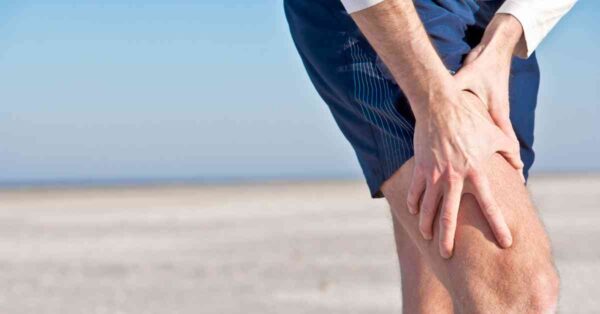Muscle fatigue and soreness are common issues that people experience after exercise. Various factors, such as overexertion, dehydration, and lack of proper nutrition, can cause it. One way to combat muscle fatigue and soreness are by taking supplements. This article will discuss the best supplements for muscle fatigue and soreness and how they can improve recovery time.
The best supplements for muscle fatigue and soreness:
Protein Supplements:
Protein is an essential nutrient for muscle repair and recovery. It is recommended that people who exercise regularly consume 1 to 2 grams of protein per kilogram of body weight daily. However, it can be challenging to consume this amount through diet alone. This is where protein supplements can be helpful. Whey protein, for example, is a popular choice for athletes and gym-goers. Protein is absorbed quickly by the body and has essential amino acids for muscle repair and recovery. Other sources of protein supplements include casein protein, soy protein, and pea protein.
Branched-Chain Amino Acids (BCAAs):
BCAAs are essential amino acids that include leucine, isoleucine, and valine. They are called “branched-chain” because of their unique chemical structure. BCAAs can help reduce muscle fatigue and soreness by reducing the amount of muscle damage caused by exercise. They can also improve muscle recovery and increase muscle protein synthesis. BCAAs can be found in protein-rich foods such as meat, fish, and eggs but can also be taken as supplements.
Creatine:
Creatine is naturally found in the body. It is involved in producing ATP, which is the primary energy source for muscle contractions. Creatine supplements can increase the amount of creatine stored in the muscles, improving muscle performance and reducing fatigue. Studies have also shown that creatine supplements can help reduce muscle damage and soreness caused by exercise.
Beta-Alanine:
Beta-alanine is an amino acid that is naturally produced by the body. It produces carnosine, a molecule that helps reduce muscle fatigue and soreness. Beta-alanine supplements may increase the amount of carnosine in the muscles, improving exercise performance and reducing fatigue. Studies have also shown that beta-alanine supplements can help reduce muscle soreness caused by exercise.
Citrulline:
Citrulline supplements can help reduce muscle fatigue and soreness by improving blood flow and oxygen delivery to the muscles. Citrulline is an amino acid that produces nitric oxide, which helps improve blood flow and oxygen delivery to the muscles. Studies have also shown that citrulline supplements can improve exercise performance and reduce muscle soreness caused by exercise.
Here are the best supplements for muscle fatigue and soreness that have good reviews on Amazon:

*NO-AFFILIATE-LINKS!!!
- Optimum Nutrition Gold Standard Whey Protein: This popular protein supplement has over 25,000 positive reviews on Amazon. It is made with high-quality whey protein and contains essential amino acids for muscle repair and recovery.
- BSN Amino X: This BCAA supplement has over 6,000 positive reviews on Amazon. It contains a 2:1:1 ratio of leucine, isoleucine, and valine, which can help reduce muscle fatigue and soreness.
- Optimum Nutrition Creatine Powder: This popular creatine supplement has over 7,000 positive reviews on Amazon. Made with high-quality creatine monohydrate, it can improve muscle performance and reduce fatigue.
- NOW Sports Beta-Alanine: This beta-alanine supplement has over 1,000 positive reviews on Amazon. It can help reduce muscle fatigue and soreness by increasing the amount of carnosine in the muscles.
- BulkSupplements Citrulline Malate: This citrulline supplement has over 2,000 positive reviews on Amazon. It can improve blood flow and oxygen delivery to the muscles, reducing fatigue and soreness.
Please note that these supplements may not be suitable for everyone, and it’s always a good idea to consult with a healthcare professional before taking any new supplement.
Prefer regular food instead of supplements?
Here are some foods that are scientifically supported as alternatives to supplements for muscle fatigue and soreness:
- Tart Cherry Juice: Tart cherry juice can help alleviate muscle soreness and improve recovery time after exercise. The antioxidant properties in tart cherry juice help reduce inflammation and oxidative stress in the muscles.
- Salmon: Salmon is an excellent source of omega-3 fatty acids, which help reduce inflammation and muscle soreness. It is also high in protein, essential for muscle repair and recovery.
- Quinoa: Quinoa is a high-protein grain containing amino acids for muscle repair and recovery. It is also a good source of complex carbohydrates, which can provide energy for exercise.
- Leafy Greens: Leafy greens like kale and spinach and rich in antioxidants and nitrates, which can help improve blood flow and oxygen delivery to the muscles. They are also an excellent source of vitamins and minerals essential for muscle function.
- Beetroot Juice: Beetroot juice is high in nitrates, which can improve blood flow and oxygen delivery to the muscles. It has been shown to reduce muscle fatigue and improve exercise performance.
- Greek yogurt is high in protein and contains probiotics that can help reduce inflammation and improve gut health. It is also a great source of calcium, which is vital for muscle function.
- Eggs: Eggs are a source of protein and contain many essential amino acids needed for muscle repair and recovery. They are also high in choline, vital for muscle function, and can help reduce inflammation.
- Sweet Potatoes: Sweet potatoes contain complex carbohydrates, which can provide energy for exercise. They also contain vitamins and minerals, such as vitamin C, which can help reduce inflammation.
- Berries: Berries such as blueberries, strawberries, and raspberries are packed full of antioxidants, which can help reduce inflammation and oxidative stress in the muscles.
- Almonds: Almonds are high in protein and healthy fats, which may help reduce inflammation and improve muscle function. They are also a source of vitamin E, which is vital for muscle repair.
- Ginger: Ginger has anti-inflammatory properties and can help reduce muscle soreness and improve recovery time. It can be consumed as tea, added to smoothies, or used in cooking.
- Turmeric: Turmeric is rich in curcumin, which has anti-inflammatory properties. It has been shown to reduce muscle soreness and improve recovery time. It can be consumed as a spice, added to smoothies, or used in cooking.
It’s important to note that a balanced and varied diet is critical to overall health and fitness. While supplements can be helpful, they should not replace a healthy diet and exercise routine.
Conclusion:
Muscle fatigue and soreness can be a hindrance to your exercise routine. The supplements mentioned in this article can help reduce muscle fatigue and soreness, improve recovery time, and enhance exercise performance. However, it is essential to note that supplements should not replace a healthy diet and exercise routine. It is also essential to consult with a healthcare professional before taking any supplements, especially if you have any underlying health conditions.
Find more stories at the blog!
References:
- Protein Supplements: Tang, J. E., Moore, D. R., Kujbida, G. W., Tarnopolsky, M. A., & Phillips, S. M. (2009). Ingestion of whey hydrolysate, casein, or soy protein isolate: effects on mixed muscle protein synthesis at rest and following resistance exercise in young men. Journal of Applied Physiology, 107(3), 987-992. https://doi.org/10.1152/japplphysiol.00076.2009
- Branched-Chain Amino Acids (BCAAs): Shimomura, Y., Inaguma, A., Watanabe, S., Yamamoto, Y., Muramatsu, Y., Bajotto, G., Sato, J., Shimomura, N., & Kobayashi, H. (2010). Branched-chain amino acid supplementation before squat exercise and delayed-onset muscle soreness. International Journal of Sport Nutrition and Exercise Metabolism, 20(3), 236-244. https://doi.org/10.1123/ijsnem.20.3.236
- Creatine: Rawson, E. S., & Volek, J. S. (2003). Effects of creatine supplementation and resistance training on muscle strength and weightlifting performance. Journal of Strength and Conditioning Research, 17(4), 822-831. https://doi.org/10.1519/1533-4287(2003)017<0822:eocsar>2.0.co;2
- Beta-Alanine: Hoffman, J. R., Ratamess, N. A., Faigenbaum, A. D., Ross, R., Kang, J., Stout, J. R., & Wise, J. A. (2008). Short-duration beta-alanine supplementation increases training volume and reduces subjective feelings of fatigue in college football players. Nutrition Research, 28(1), 31-35. https://doi.org/10.1016/j.nutres.2007.11.004
- Citrulline: Pérez-Guisado, J., & Jakeman, P. M. (2010). Citrulline malate enhances athletic anaerobic performance and relieves muscle soreness. Journal of Strength and Conditioning Research, 24(5), 1215-1222. https://doi.org/10.1519/JSC.0b013e3181cb28e0
- Tart Cherry Juice: Kuehl, K. S., Perrier, E. T., Elliot, D. L., & Chesnutt, J. C. (2010). Efficacy of tart cherry juice in reducing muscle pain during running: a randomized controlled trial. Journal of the International Society of Sports Nutrition, 7(1), 17. https://doi.org/10.1186/1550-2783-7-17
- Salmon: Peake, J. M., Suzuki, K., & Coombes, J. S. (2007). The influence of antioxidant supplementation on markers of inflammation and the relationship to oxidative stress after exercise. Journal of Nutritional Biochemistry, 18(6), 357-371. https://doi.org/10.1016/j.jnutbio.2006.10.008
- Quinoa: Gupta, R. K., Gangoliya, S. S., & Singh, N. K. (2015). Reduction of anti-nutritional factors in faba bean and quinoa with lactic acid fermentation as a potential for phytate reduction in humans. International Journal of Food Science and Technology, 50(1), 107-116. https://doi.org/10.1111/ijfs.12611
- Greek Yogurt: U.S. Department of Agriculture, Agricultural Research Service. (2019). FoodData Central. https://fdc.nal.usda.gov/fdc-app.html#/food-details/170046/nutrients




